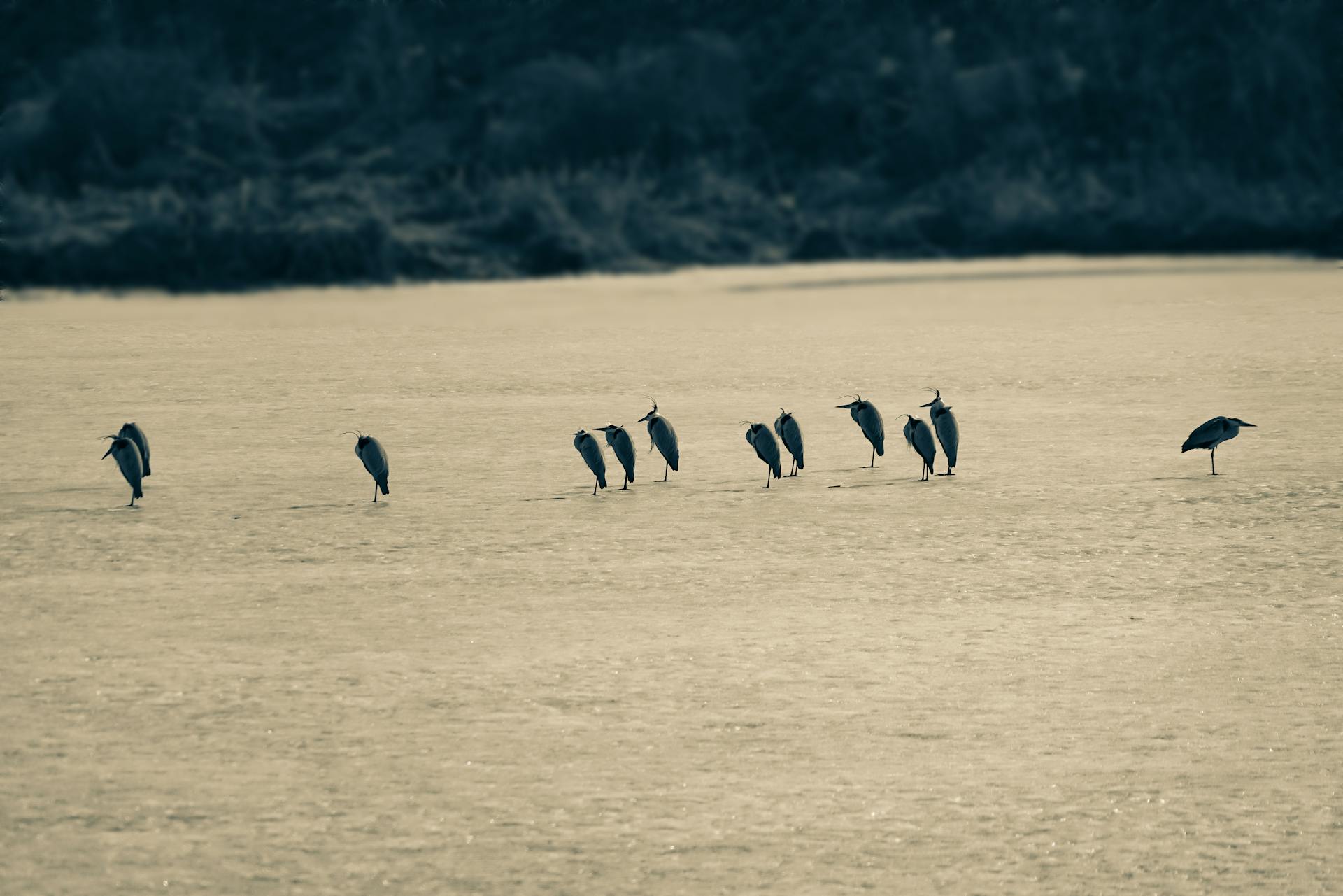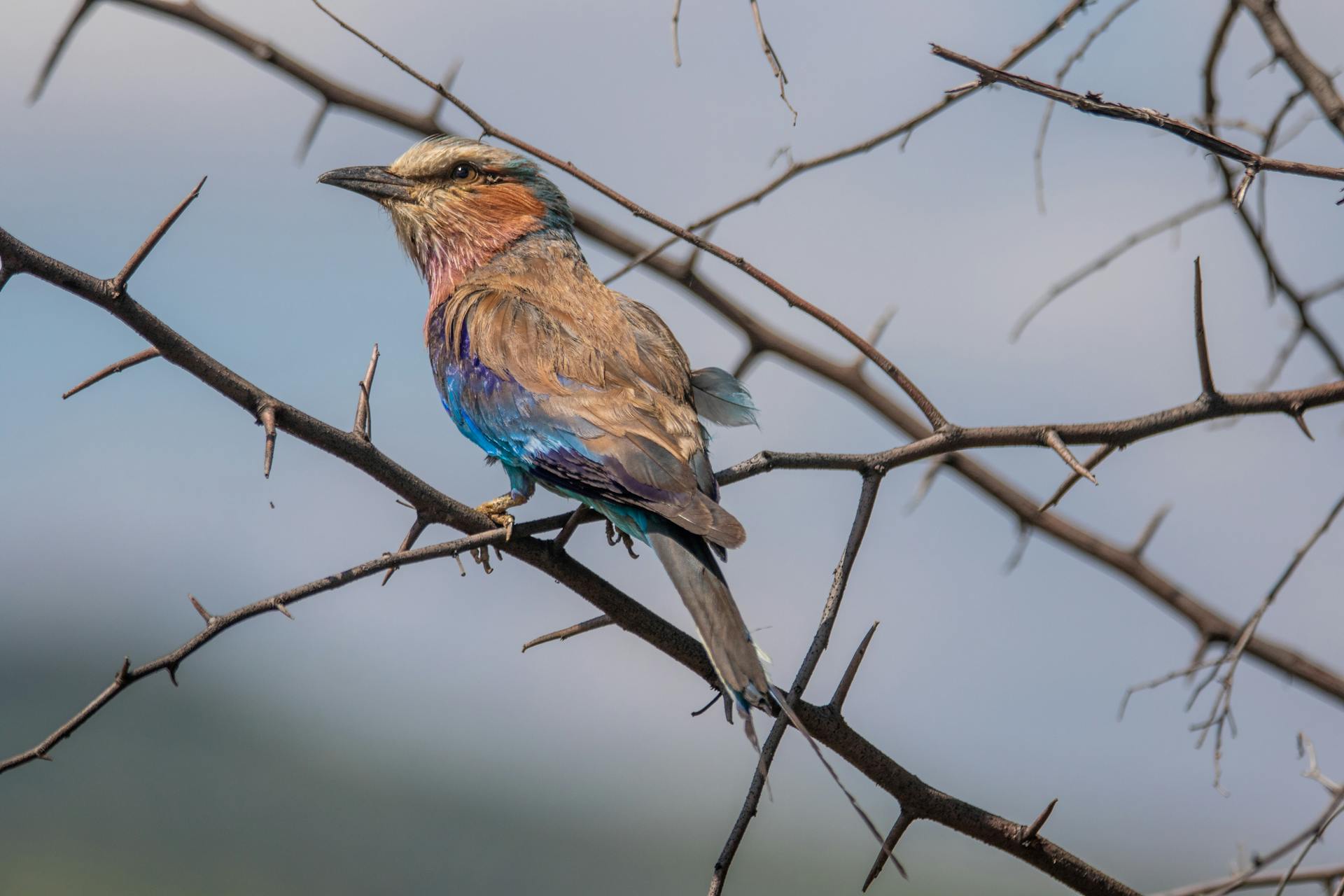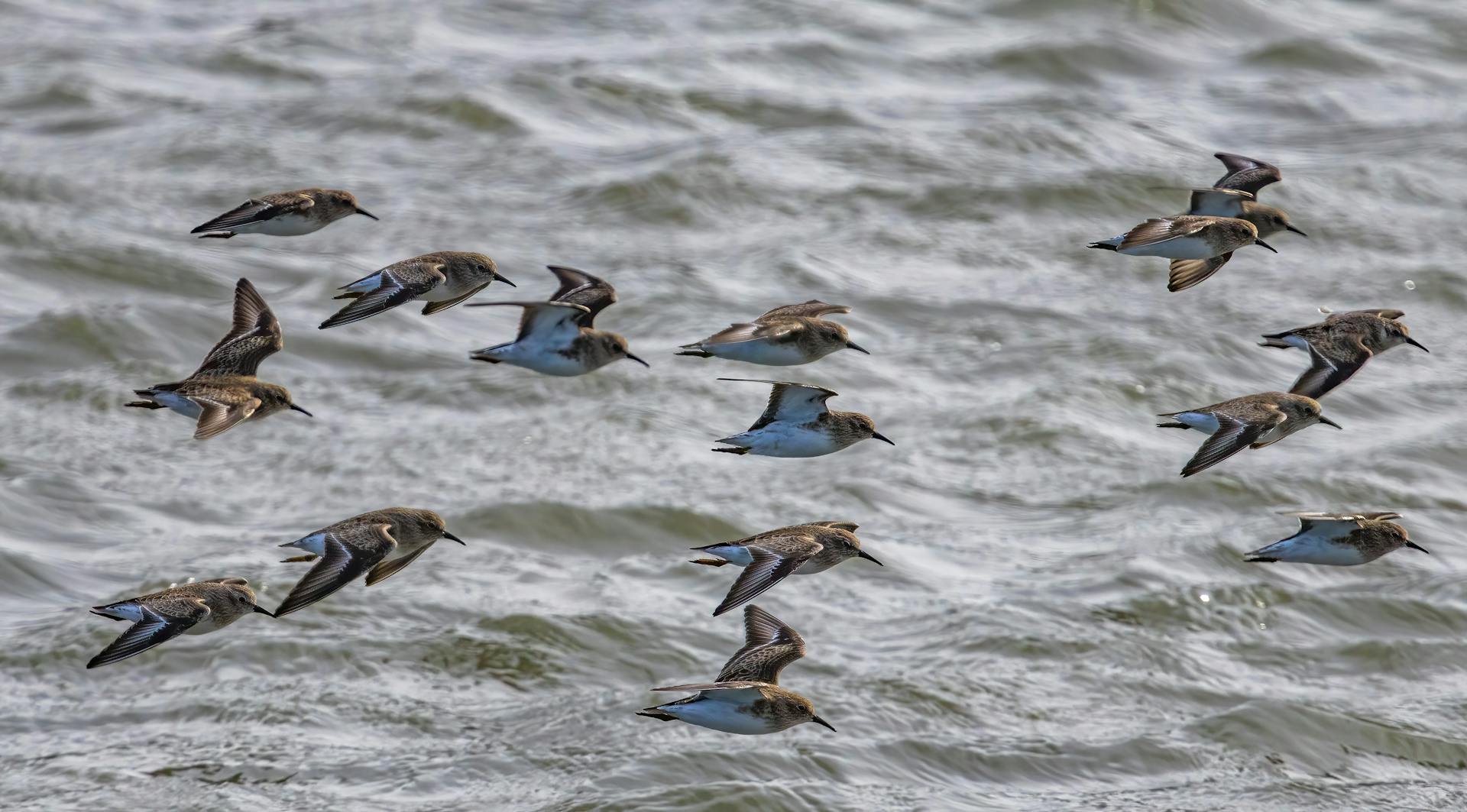
Are you facing problems with birds flying into your home or garden and causing damage? Bird droppings can be a potential health threat, especially if left unchecked. The good news is that this guide will help you keep birds away from your homes, gardens, and cars with effective bird control strategies.
No matter what type of bird you're dealing with, whether it's the European starling, house sparrow, or common pigeon – all notorious pest birds in urban areas of the United States – we've got you covered. Pigeons are one of the hardest birds to get rid of due to their excellent homing abilities and strong habitual instincts to come back home. With their short legs and distinctive blue-grey color with noticeable iridescent feathers, pigeons typically nest in flat areas like air conditioning unit window sills and building ledges where they build nests that can block ventilation systems and increase wear on HVAC systems. And don't forget about their droppings which are capable of etching marble and metal! Did you know that 100 pigeons can produce up to 4800 pounds of droppings per year? This poses a great threat since they carry over 60 parasites and diseases that can be harmful to humans.
The house sparrow isn't much better as they are highly dependent on food sources and will nest and roost in large groups. They have brown feathers and a cone-shaped bill for males while females have a white crown and black throat with a dull stripe. House sparrows reproduce quickly and behave aggressively towards other birds as well as potentially dangerous areas. They are known to carry over 25 diseases that can be transmitted to humans so limiting their food sources or employing bird repellents is key. However, exclusion devices or scare products won't work so it's important to remove their nests and prevent them from nesting in potentially problematic areas.
It's troublesome and possibly illegal to remove bird nests from your home. It's a better strategy to prevent birds from nesting in the first place.

Preventing birds from nesting in your home is a better strategy than evicting them. Not only can removing bird nests be troublesome, but it can also be illegal under the Migratory Bird Treaty Act. This 1918 act protects a long list of common birds, including falcons, hawks, pigeons, doves, woodpeckers, swifts, and warblers.
If you've had birds nested on your property before, there are steps you can take to prevent future bird nest building. First and foremost, ensure that any partially rotted soffits or trim provide easy access to cozy nesting spots are repaired or replaced. Doing so will mitigate the resulting increase in bird droppings and potential structural damage.
The good news is that preventing birds from nesting on your property doesn't mean you have to discourage birds entirely. Experts handpick several species that are less likely to build their nests in residential areas. Additionally, by encouraging birds with birdhouses or feeders placed away from your home's exterior walls and eaves, you may help prevent other species from setting up shop in the first place. Ultimately when it comes to dealing with avian visitors on your property, remember that prevention is often easier than eviction!
How to Keep Birds Away: Use Bird Roosting Spikes

Do you have birds constantly landing and roosting on the flat ledges of your homes exterior? While you may love ledges for their aesthetic appeal, birds habitually theyre bound to find them attractive too. Fortunately, there's a solution to keep these pesky birds away. You can counter install roosting spikes.
Roosting spikes are crisscrossed metal spikes attached to a metal base. They're sold in 100-foot lengths and can be cut to fit any flat surface. The best part is that they don't hurt the birds, but it does make it difficult for them to land or perch on the surface.
If you prefer not to use bird repellent gel, then installing roosting spikes is an effective way to keep birds away from your property. Not only do they keep your homes exterior looking clean and bird-free, but also prevent any potential damages caused by constant bird droppings. So why not try out some bird roosting spikes today?
Deter Pesky Birds with Unpleasant Scents

Are you tired of birds nesting in your favorite spot? The wild wild world suggests using scents agreeable to humans but unpleasant to birds. A simple recipe mix can be made by mixing lemon oil and peppermint oil and then soaking cotton balls in the mixture.
Placing these soaked cotton balls in areas where birds tend to nest or frequent will help deter them from coming back. This method is safe and effective, and it won't harm the birds. So if you're looking for a humane way to keep pesky birds away, try out this scent-based solution!
Dazzle Your Senses: Let the Wind Catch the Sparkle
Birds can be a beautiful sight to behold, but sometimes they can become quite a nuisance. If you're looking for ways to repel birds deploying shiny moving objects is a great place to start. CDS strips, aluminum foil, shiny beads, and wind chimes are all great choices when it comes to making your space less attractive to birds.
Shiny objects work because they alert birds that there may be potential danger in the area. The light reflected off these objects creates an optical illusion that alerts birds to stay away from the area. Additionally, wind chimes can add an audible element to your bird repelling strategy as they create noise which also helps deter birds from your property. By letting the wind catch the sparkle of these shiny moving objects, you'll dazzle your senses while keeping pesky birds at bay.
Why You Shouldn't Feed Birds: A Cautionary Tale
Bird watching is a popular hobby for many people. Watching birds feeding can be fascinating and a great way to connect with nature. However, it is important to remember that not all birds are meant to be fed. In fact, feeding birds can have negative consequences on their health and the environment.
Instead of offering food to birds, it is better to stop feed altogether. Station bird feeders or leaving pet food out can attract unwanted animals like squirrels and raccoons. Additionally, feeding birds in protected areas can cause harm to the ecosystem and even threaten the survival of certain species. So next time you're out bird watching, resist the urge to feed them and instead focus on observing their natural behaviors in their natural habitats.
Tidy Up Your Outdoor Space for a Refreshing Look
If you're looking to spruce up your outdoor space, one of the best things you can do is prune back dense growth from trees. While it may seem counterintuitive, pruning trees actually benefits birds in the long run. Thick foliage deprives birds of nesting spots, so by thinning out certain areas, you'll give them an alternative nesting area to call home. When you're working on place pruning, make sure not to remove too much at once, as this can harm the tree and create unnecessary stress.
Another great way to tidy up your yard is to pick up loose twigs, dried leaves and other debris that might be lying around. This will not only make your space look cleaner but also prevent birds from using these items as building materials for their nests. It's also important to keep trash securely covered so that birds don't accidentally ingest any harmful substances. You can even weave paper and fibrous household waste items into a compost pile or bin for a more sustainable solution. By taking these simple steps, you can have a beautiful outdoor space while still making sure that birds have a safe and welcoming environment.
Frequently Asked Questions
How to scare away birds from your car?
One effective way to scare away birds from your car is by using reflective surfaces like CDs, mirrors or wind chimes to create movement and bright flashes. Another option is to place fake predators like owls or snakes near your car as a deterrent. Covering your car with a tarp or netting can also prevent birds from landing on it.
How do you keep birds away from your home?
You can keep birds away from your home by installing deterrents such as bird spikes, netting or sound devices, and making sure to remove any food sources they may be attracted to.
How do you use bird repellent to scare birds?
Bird repellent can be used by spraying or applying it to areas where birds gather, such as trees or buildings. The scent and taste of the repellent will discourage birds from coming back to that area.
What is the best way to scare birds away?
The best way to scare birds away is by using visual deterrents such as reflective tape, scarecrows or owl decoys, and physical barriers like netting or spikes. Additionally, loud noises like clapping or using a bird distress call can also be effective.
How do you prevent birds from building nests?
Prevent birds from building nests by removing potential nesting sites, such as trees with low-hanging branches or gaps in eaves and roofs. Consider installing netting or spikes on ledges and balconies to deter nesting behavior.
Featured Images: pexels.com


